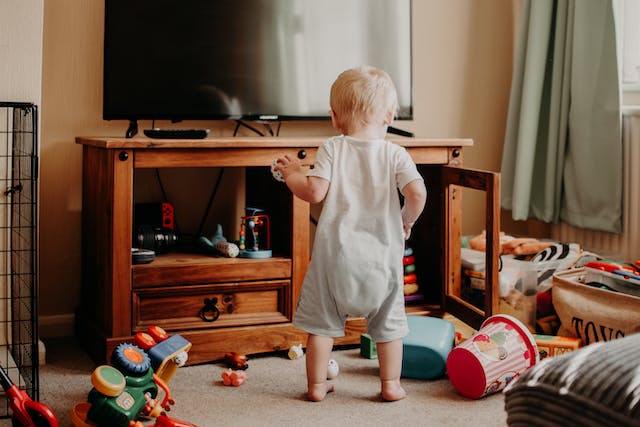Working Moms and Daycare

Question: Has there been any conclusive evidence supporting claims that children raised by caregivers other than their parents tend to be more aggressive? I have waffled over this decision too many times to count. As a career military officer, I actually ended my service to stay home with my three year old and newborn. A year later, I am miserable, and desperately wanting to return to work. What do I do with this guilt because I am a “Stay-at-home failure?”
– Shannon
Answer: Absolutely not! Children who are raised by loving, knowledgeable caregivers do not become more aggressive. All children need stable childhoods and a secure emotional foundation in life. But there are many ways to meet the needs of young children and a stay-at-home-mother is, by no means, the only way.
The question is not “to work or to stay home”. The questions are: how to find the best care for your children and how to design your choices to meet the daily needs of your family.
First, take the time to find a high quality program for your children. Three year olds have different needs than newborns. So, look for a program that understands both.
- Find a program with well-trained, professional staff who understands the emotional, intellectual and developmental needs of young children. The most important criterion for your children’s well-being is the personal relationship they will have with their teachers. (All learning and growth, even brain development, is based on it!)
- Find a program with low teacher-child ratios and small group sizes.
- Find a clean, safe and stimulating facility that will meet your children’s interests (don’t be fooled by facilities that are marketing to “adult” perceptions of “wow”)
- Find a program that you trust and are willing to engage in a long-term relationship of “sharing” your children. This is a partnership that builds quality day-by-day and month-after-month. “Quality” is not a static one-time situation. It is on-going, growing and changing with you and your family.
For more information and resources, check out www.naeyc.org (The National Association for the Education of Young Children). You will find the most current literature available on caring and educating young children as well as a list of nationally accredited centers.
In addition to caring for your children, start devising a plan for your family on how to best transition to a new work-family situation. Discuss how to delegate and juggle all the tasks you are currently responsible for. Returning to work after children will not be the same as working before having children. Be realistic about what you can and cannot do. There may be some compromises – choose, as best as you can, how you’d like to see things done. Then, give yourself time for trial-and-error to learn what really works for you.
You are not a “stay-at-home failure” – You have learned a valuable lesson about who you are, what sustains you as an adult woman with many roles, and how to be a better mother by understanding your own needs and goals. Go do what you love, Captain!
Good Luck,
Karen Deerwester, Ed.S.





Follow Us
Join the conversion. Make sure to follow us on our social platforms for the latest content and FamilyTime news.